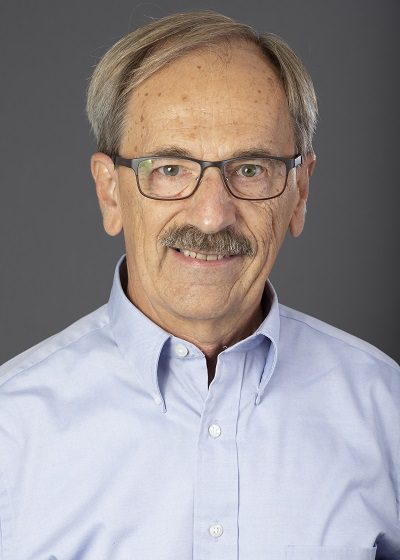From The Editor: Climate Change Now Is ‘The Issue’

My October 2020 column was titled “Engineers Need to Lead the Way on Climate Change Mitigation,” and I tried to make the point that our profession has a responsibility to maintain an environment that’s best for the world, and we need to do more than just sit back and watch. I also noted that many areas were reporting improved climate conditions due to the fact that more people were staying home because of the pandemic, and there was hope we could continue some of that progress.
This morning, I read an article from CNN that part of the United Nations Sixth Assessment Report of the Intergovernmental Panel on Climate Change was published. The findings are not good. The report is huge—about 3,500 pages compiled by 200 international scientists using more than 14,000 studies. This is a report with very sound information and well-qualified participants; it must not be taken lightly.
It’s In the Data
The report says very directly and stronger than any other previous reports that global warming is caused by “human greenhouse gases,” including carbon dioxide and methane gases. Society can no longer question natural vs. human-caused climate change. We must end greenhouse-gas emissions.
The 2 degree Celsius warming limit currently is projected to happen before the year 2050 if emissions continue to increase. Although it may sound like the “distant future,” it’s within the lifespan of my children and grandchildren. The report goes on to show the effects we’re already experiencing (e.g., drought, heat waves, flooding, hurricanes, etc.) and predicts what will occur if we continue on our current path.
The report is long on science, but short on policy. It’s extremely factual and forecasts the future, but doesn’t give mitigation policies. The report with action items is forthcoming and, unfortunately, will be controversial. My concern is that too many people will not study the scientific findings, but will still comment on the recommended actions based on their feelings or opinions (or, more likely, input from those who are impacted by reducing emissions).
What Can You Do?
So we know we’ve upset our Earth environment, but we also know we can still positively contain our impact. Anyone can look on the internet and find pages that give you “12 Ways to Save the Environment” or “The Top 10 Things You Can Do to Help Prevent Climate Change.”
Recommendations include planting trees, buying an electric vehicle, installing solar panels, eating local food and less meat, and using less water—all practices we should be doing right now. Some are a little less obvious, such as using a bank that doesn’t invest in fossil-fuel companies. Surprising to me is the fact that the global fashion industry is responsible for about 10 percent of greenhouse gas emissions, so repair your clothes, keep them longer and donate them when you’re done.
But likely the most important thing we can do is to continue to inform people of the severity of the issue and convince them to take action. Read the reports and spread the word that this is serious. Talk to your colleagues and friends and relatives. It’s not acceptable to allow people to say they don’t believe in climate change.
Leading Toward a Better Direction
Many politicians get funding from sources that aren’t able to adapt to climate change. So, in effect, their votes have been purchased. How do we convince them to set policies that focus on the environment when they’re being funded by fossil-fuel companies? That hasn’t been very successful in the recent past as evidenced by the fact that not much of significance has changed in our laws. (One positive action was President Biden renewing our membership in the Paris Agreement.)
Probably the most-effective way to enact environmentally friendly laws is to remove fossil-fuel enablers from positions of power. They’re consciously altering the way of life for us, our children and grandchildren in a negative way.
The engineering profession, however, is still well-respected by the public. This is an opportunity to use our influence whenever we can to direct the actions of others. My hope is that climate change will become the most-important issue for the next few years. My grandchildren have the same hope, and soon they will be of voting age.
About Robert Schickel
Robert Schickel was born in New Jersey and received his BS in Civil Engineering degree in 1971 from Valparaiso University in Indiana. His career started as a bridge design engineer and expanded to include design of various transportation facilities, including highways, bridges, rail lines and stations, and airport runways. Mr. Schickel managed engineering offices ranging from 20 to 140 people. He also served as a consultant to a large utility company. Mr. Schickel currently resides in Indiana and serves as Adjunct Professor for the College of Engineering at Valparaiso University. He enjoys his retired life at his lake house, playing golf, listening to music and spending time with his family, especially his grandchildren.


